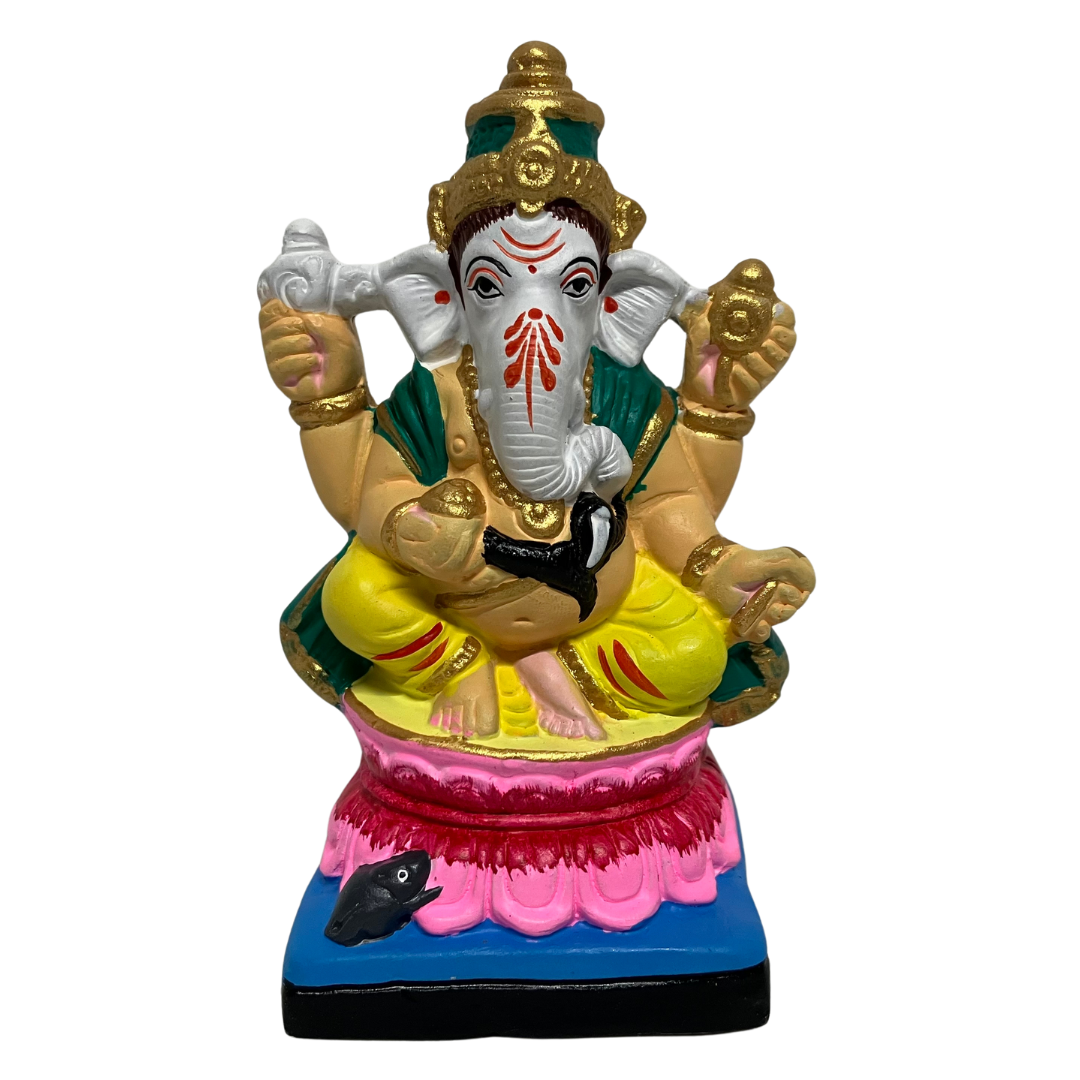Ganesha Murti
The deity of good fortune, new ventures, wisdom and removal of obstacles, his attributes are shell, discus, club and water lily, held in each of his four hands, and his vehicle is a rat. Huge yet gentle, humble enough to ride upon the insignificant rat, his figure in its totality represents the indivisible universe.
Ganesha is worshipped at the beginning of ventures such as buying a vehicle, moving to a new home or starting a business. He grants success, prosperity and protection against adversity.
Ganesha is one of the best-known and most widely loved gods. He is the principal deity associated with traders; the god of success. He is also patron of arts and sciences, and the Deva of intellect and wisdom.




